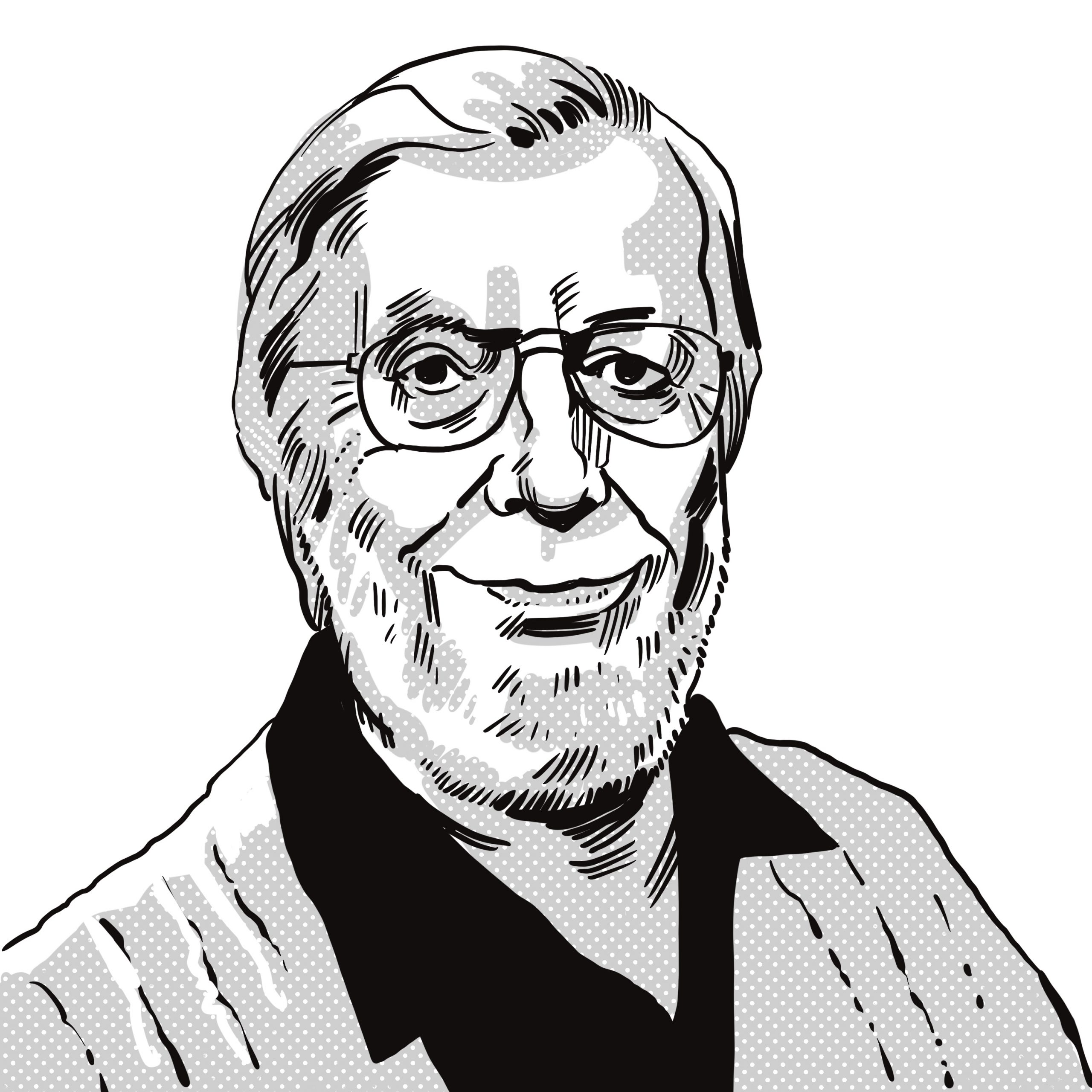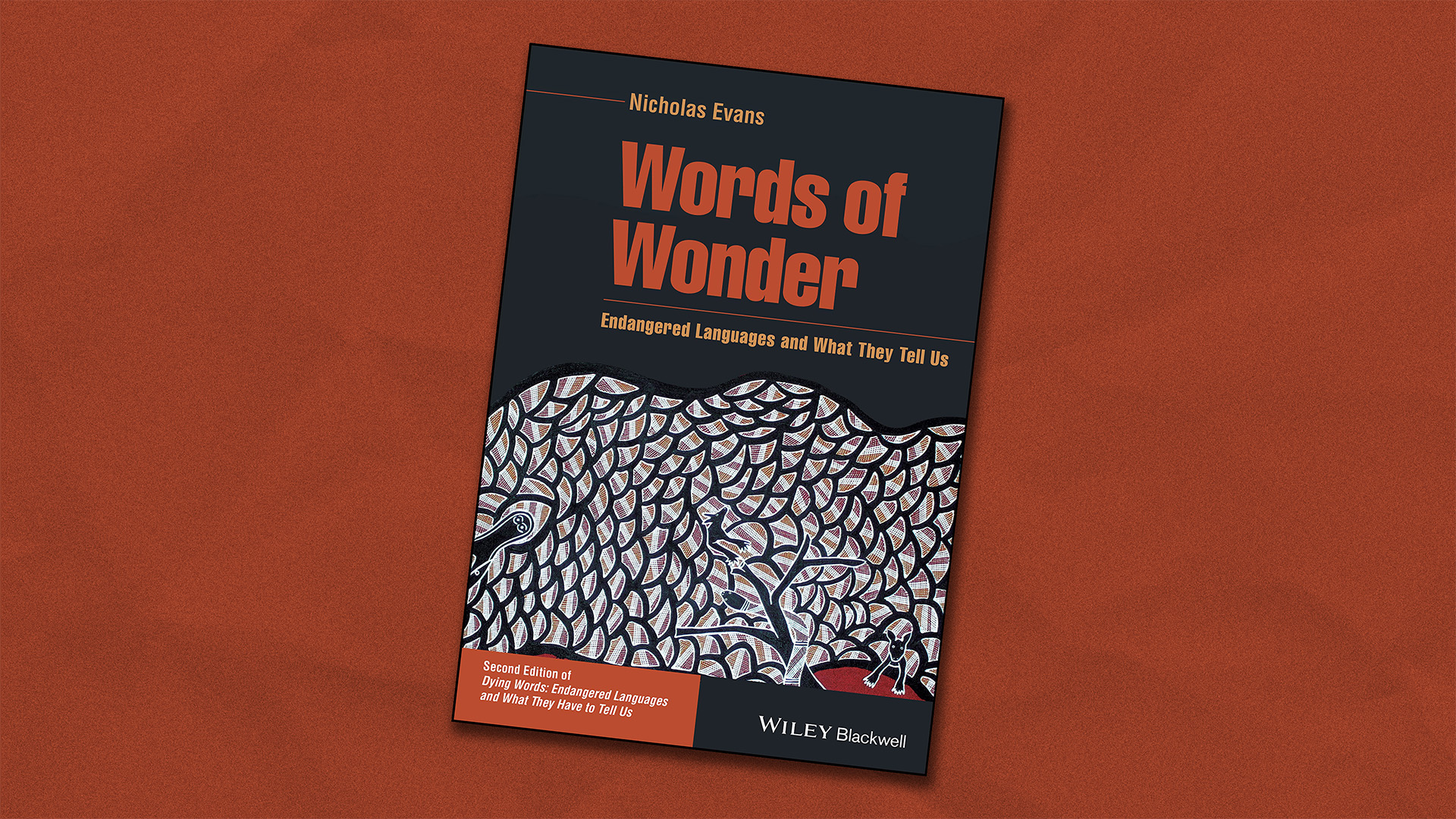Nicholas Evans was wading out to a boat moored in the shallow Gulf of Carpentaria, off the northern coast of Australia, when he felt what he thought was a baby shark nipping at his heels. The “nips” were actually bullets hitting the sea on either side of him.
They had exited a rifle wielded by a hungover pilot called Fletcher (not his real name), who was standing on the shore. The previous day, Evans had refused Fletcher’s services, judging him too drunk to safely ferry him and three dozen others from Mornington Island to the mainland.
“I was thinking, ‘Fletcher’s a good shot’,” Evans tells me. “If he wanted to kill me he would have hit me with his first bullet, so he must be doing it to let off anger. Just keep walking really, really straight.” He was carrying some canisters filled with water. The boat was a long way out. He got there intact, Fletcher caught up and vented, and that was that.
It’s early summer and we’re sitting in a cafe in Paris, where the 69-year-old linguist spends part of each year with his French wife, also a linguist. Having interviewed him for my book on the Indo-European languages, Proto, I’ve become intrigued by his work on much less well-known languages, and I’m quizzing him about his life in the field.
Neither of us knows that in a few months’ time, he will be awarded the British Academy’s Neil and Saras Smith Medal for lifetime achievement in linguistics – the closest thing the discipline has to a Nobel Prize – so on we go discussing the dangers of fieldwork.
The incident on Mornington Island happened nearly 40 years ago, when Evans was studying the now practically extinct Australian language Kayardild. A professor at the Australian National University in Canberra, he still studies Australian languages, but since 2008 – with a break for Covid – he now spends six weeks each year in Papua New Guinea, documenting and studying a Papuan language called Nen.
On both sides of the Torres Strait, Evans mingles with people whose lifestyles are premodern or transitioning to modernity. They live close to nature, are often poor, and some of them carry the trauma of historical persecution. The dangers he faces are the same ones they face, and he sorts them into three categories: faulty transport, nature and human violence.
Suggested Reading


When learning languages becomes a stress test
Evans has experienced the hat-trick, having nearly sunk in boats at sea and had some close shaves with crocodiles and venomous snakes. “The first text I recorded in Nen was a gruesome account of the symptom sequence if you get bitten by a Papuan black snake,” he says.
None of it deters him, because he considers efforts to document the world’s smaller languages crucial to establishing the potential and limits of language as a whole. Noam Chomsky, the first winner of the British Academy medal in 2014, argued that human language is defined by the faculty of universal grammar. Babies are born with this faculty, which allows them to pick up any natural language with minimal prompting.
Universal grammar still has its defenders, but many linguists now feel that expanding knowledge of dead languages, and of exotic living ones such as Nen and Kayardild, has fatally undermined it. They think it’s time to emphasise language’s diversity rather than its commonality. Evans is one of them.
But fieldwork has another draw for Evans. He considers it one of the last opportunities for true exploration on Earth. Nearly 900 languages are spoken in Papua New Guinea – one eighth of the world’s total – but few have been documented. Each one contains a piece of the puzzle of the region’s unwritten past, along with knowledge of the natural environment and its speakers’ culture and beliefs. And some of those languages are dying, as powerful actors eye up the nation’s abundant natural resources, and their speakers are ousted from their ancestral lands.
Inevitably, perhaps, Evans has become involved in the lives of those who patiently teach him their tongues. He has supported Kayardild artists including Sally Gabori, who painted prolifically from the age of about 80 until her death 10 years later, in 2015, and whose work is now world-famous. He has acted as an expert witness in a court case where recognition of indigenous Australians’ land ownership turned on the meaning of a phrase in their language. And he campaigns for their academic inclusion.
When the email is eventually sent telling him that he has won the British Academy medal, he is in Papua New Guinea and it passes him by. In September, after “nine blissful nights” in his own bed in Canberra, he heads north to Garrthalala, East Arnhem Land, to teach linguistics at a “bush uni” run by local Yolngu people.
It’s there, in a tent on the beach, overlooking the Gulf of Carpentaria where Fletcher once shot at him, that he finally reads the email.
Laura Spinney is a science journalist, novelist, and non-fiction writer



